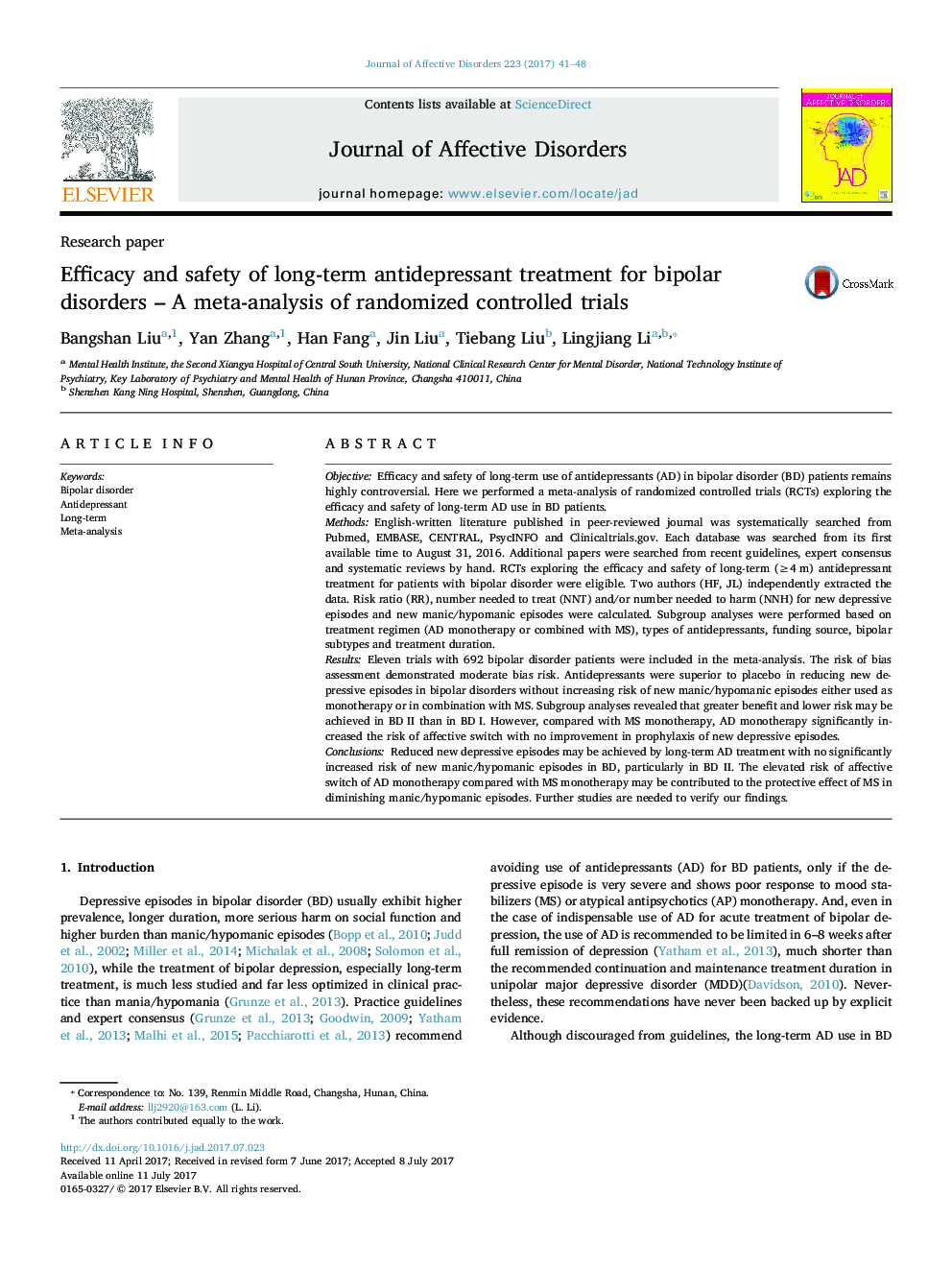| کد مقاله | کد نشریه | سال انتشار | مقاله انگلیسی | نسخه تمام متن |
|---|---|---|---|---|
| 5721790 | 1608102 | 2017 | 8 صفحه PDF | دانلود رایگان |
- Long-term antidepressant (AD) use for bipolar disorder (BD) is highly contentious and urgently needs more research evidence.
- Long-term AD treatment may reduce risk of depression without increasing risk of mania/hypomania in BD, particularly in BD II.
- AD combined with mood stabilizers (MS) may the superior to either AD or MS monotherapy in BD treatment.
ObjectiveEfficacy and safety of long-term use of antidepressants (AD) in bipolar disorder (BD) patients remains highly controversial. Here we performed a meta-analysis of randomized controlled trials (RCTs) exploring the efficacy and safety of long-term AD use in BD patients.MethodsEnglish-written literature published in peer-reviewed journal was systematically searched from Pubmed, EMBASE, CENTRAL, PsycINFO and Clinicaltrials.gov. Each database was searched from its first available time to August 31, 2016. Additional papers were searched from recent guidelines, expert consensus and systematic reviews by hand. RCTs exploring the efficacy and safety of long-term (â¥4 m) antidepressant treatment for patients with bipolar disorder were eligible. Two authors (HF, JL) independently extracted the data. Risk ratio (RR), number needed to treat (NNT) and/or number needed to harm (NNH) for new depressive episodes and new manic/hypomanic episodes were calculated. Subgroup analyses were performed based on treatment regimen (AD monotherapy or combined with MS), types of antidepressants, funding source, bipolar subtypes and treatment duration.ResultsEleven trials with 692 bipolar disorder patients were included in the meta-analysis. The risk of bias assessment demonstrated moderate bias risk. Antidepressants were superior to placebo in reducing new depressive episodes in bipolar disorders without increasing risk of new manic/hypomanic episodes either used as monotherapy or in combination with MS. Subgroup analyses revealed that greater benefit and lower risk may be achieved in BD II than in BD I. However, compared with MS monotherapy, AD monotherapy significantly increased the risk of affective switch with no improvement in prophylaxis of new depressive episodes.ConclusionsReduced new depressive episodes may be achieved by long-term AD treatment with no significantly increased risk of new manic/hypomanic episodes in BD, particularly in BD II. The elevated risk of affective switch of AD monotherapy compared with MS monotherapy may be contributed to the protective effect of MS in diminishing manic/hypomanic episodes. Further studies are needed to verify our findings.
Journal: Journal of Affective Disorders - Volume 223, 1 December 2017, Pages 41-48
